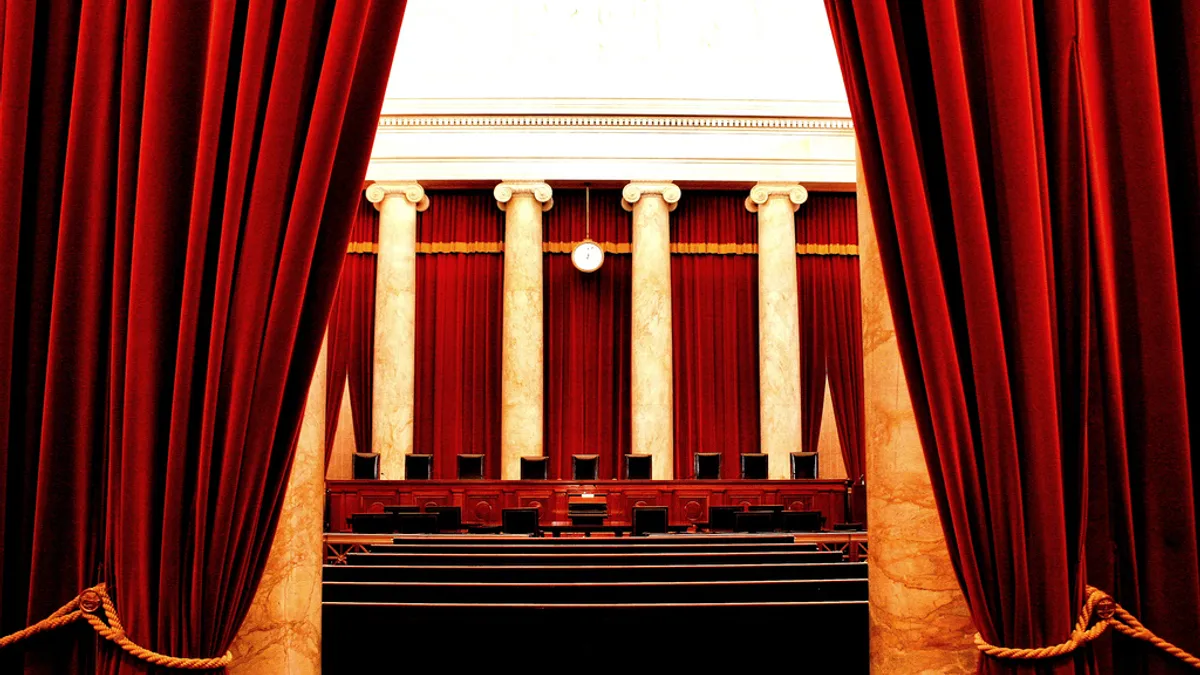In December 2013, the U.S. government applied for a warrant to obtain email information from Microsoft relating to a case regarding illegal drugs. The warrant was granted and issued to Microsoft, but the company did not comply because the data was stored on a data center in Ireland.
Over the last several years, the case has worked its way up to the Supreme Court, with lower courts going back and forth on the issue.
Microsoft is not the first company at odds over data stored abroad and the reach of domestic law, but it is the first to reach the Supreme Court for such an issue.
The case could determine how outdated legislation is applied by law enforcement authorities. It could also have broad impacts on privacy and access to data, placing service providers in potentially precarious legal situations, thereby impacting clients.
1. Why is this even a question?
The statute pertaining to this case is the 18 U.S. Code § 2703, commonly known as the Stored Communications Act. The SCA protects disclosure of customers' electronic communications or records by a service provider, especially internet service providers.
The act does make an exception in the case of criminal investigations when the government has a warrant for data, but the law does not explicitly grant extraterritorial scope.
Another key problem is that the law was enacted in 1986, years before the internet was commercialized and consensus among parties recognizes that the law is woefully outdated. When the legislation was enacted, Congress did not know the kinds of technical matters the SCA would apply to in the coming decades or that service providers would be storing information in data centers abroad.
Many on both sides of the issue recognize that this should be a congressional matter and the laws need to be updated. While some proposals have been introduced in Congress, revamping the law is never a guarantee.
2. What does the U.S. Department of Justice say about the case?
The government is positing that Microsoft is impinging on a criminal investigation and undermining security.
If the data in question had been located domestically, few argue that Microsoft would have dug its heels in and refrained from turning over the data.
Since a Microsoft employee in the U.S. could retrieve the data with just the push of a few buttons, the Justice Department does not think the company should be able to ignore the warrant.
If companies can keep information stored in countries where the U.S. would not have the power to access it, it could lead to digital fragmentation and segmentation by geographic lines.
3. What is Microsoft saying?
If the item sought by the warrant were physical, Microsoft would have to send someone to retrieve it from Ireland.
This type of evidence procurement would be extraterritorial, and many on the side of Microsoft in this case argue that the electronic communications information is no different.
Experts also agree that a decision against Microsoft would throw the U.S. into conflict with many international laws and regulations, including the upcoming GDPR. Cross-border data seizures could make the international arena tricky and dangerous for the U.S.
And, ultimately, the SCA does not explicitly have extraterritorial application written into it, so Microsoft and many of its peers maintain that the Justice Department does not have the enforcement power to carry out such a move.
4. This case is four years old. How much longer?
The Supreme Court is hearing arguments Tuesday morning. The judges will meet later in the week to confer and vote on the outcome and with either uphold the decision of the lower court, reverse it or send the case back to a lower court.
While the opinion of the court could take until the end of the term this summer to be released, Tuesday's arguments will be important for understanding how the justices are framing and viewing this question.
Tech leaders at home and abroad are paying attention.
"I think whenever the Supreme Court takes a case, a major technology case such as this one, it's something that the technology community would do well to pay attention to and that I expect foreign governments are also paying attention to because it will have implications beyond this specific question that the court is looking at," said David Newman, a Morrison & Foerster attorney, in an interview with CIO Dive.












